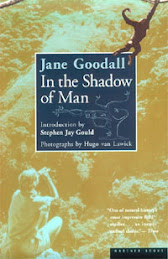
1984
by George Orwell
This post contains spoilers below the fold.
When I first heard about 1984, I assumed it was a science fiction about the physical and psychological toll inflicted on humans by an over-reaching government system, much like Animal Farm (although, I admit, I read that when I was 12 so I may not have grasped some of the deeper themes). What I didn't expect was a philosophy text, a metaphysical journey, questioning the meaning of truth and reality, and exploring how the human mind can simultaneously believe conflicting things, which Orwell calls doublethink but we know it as cognitive dissonance (although there are differences which Orwell outlines, I found cognitive dissonance the easiest avenue from which to explore the concept of doublethink).
1984 begins by detailing the day-to-day life of Winston Smith, a lower Party member and text editor in London of Airstrip One Provence of Oceania, one of three nations left on Earth after a series of wars and revolutions. The Party is a totalitarian oligarchical collective (it would be a mistake to think of this government as socialist; it is both anti-socialist and anti-capitalist) which seeks total control over its members and has a symbolic figurehead, Big Brother. It achieves this through telescreens, ever-active two-way televisions, and the thought police. But Winston has found that he can resist: he has an alcove in his apartment unseen by the telescreen where he keeps a journal, and a hideout in an antique store run by a prole, Mr. Charrington.
Winston soon begins an illicit affair with a young woman who, before he knew her, he hated intensely for proclaiming her sexlessness while he found her sexually desirable. Through his affair with Julia, Winston grows to learn that some people may seem to be loyal party members, but under the surface lust for freedom, for sex, for fineries, for human connection just as he does. These beliefs lead him to place his trust in Mr. Charrington and Mr. O'Brien, both of whom are thought police who give him just enough rope to hang himself. He is arrested and brought to the Ministry of Love, where he is tortured with the goal of teaching him to love Big Brother. It is in this second half of the book where the reader learns the logic and philosophy behind the three party axioms: War is Peace, Freedom is Slavery and Ignorance is Strength. It is through O'Brien's torture and Winston's reactions that Orwell explores consciousness, truth and reality. Is perception reality? Can the human mind force itself to perceive something that concflicts with sensory input - with what we see, hear, touch, taste and smell? Is what is seen by the mind more or less real than what is seen by the eyes? Winston struggles with these questions throughout his torture. You will have to read the novel yourself to find whether he learns to love Big Brother before he is killed (thought criminals are always killed), or whether he is able to die with resistance still in his heart.



No comments:
Post a Comment